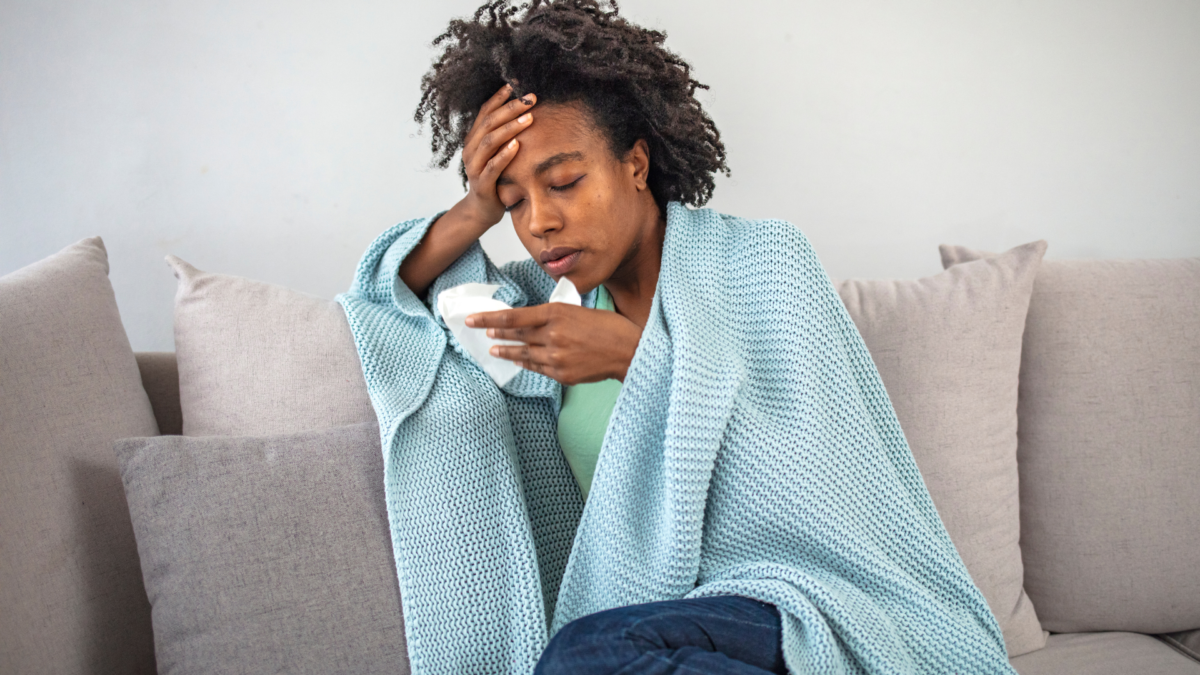As winter sets in, America pulls out their favourite coat and throws the car keys to their spouse-Mom or Dad-who has to pick up the kids from school because they’ve come down with a cold. Everyone catches a cold at some point in their lives, and there’s no use resisting. However, is there a way to delay or lessen the impact of this yearly occurrence? If you find yourself trying every cold remedy on the shelf and still haven’t had much luck when everyone starts coughing and sneezing, this article is for you.
During the colder months, we tend to huddle indoors, and that cozy environment becomes a perfect breeding ground for those pesky cold viruses. Plus, the cold weather might actually mess with our immune system, making us more vulnerable to getting sick. The dry air doesn’t help either – it dries out our nose and throat, making it easier for viruses to sneak in and wreak havoc. And believe it or not, some viruses, like the flu, actually thrive in the cold.
Now, how do we dodge the winter cold bullet? It’s all about good habits. Wash your hands regularly – that’s like putting up a force field against germs. Keep yourself hydrated to maintain those slippery mucous membranes that trap viruses. Oh, and don’t forget to live that healthy life – eat well, exercise, and get enough beauty sleep. If you can, get a flu shot for some extra protection. Making sure your home is warm enough is also important, so make sure to look into Electric Fireplaces From RFC Services (or something similar) before the cold sets in. And when you’re outdoors, bundle up! It’s not just about staying warm; it’s about giving your immune system a fighting chance.
Keep reading, and we’ll show you the best ways to prevent a cold.
Prepare Your Home for Winter
Preparing your home for the winter is an important step in preventing a cold. The cold weather can weaken your immune system, making you more susceptible to illness. To keep yourself healthy, make sure to keep your home warm and cozy during the winter months. Check your heating system well in advance to ensure it’s in proper working condition. The last thing you want is to discover your heating system isn’t working when the temperatures outside start to drop. Some of the top signs you might need a replacement include strange noises, inconsistent heating, or a sudden increase in energy bills. A properly functioning heating system will not only keep you warm but also help to prevent the spread of germs and bacteria that can cause a cold.
Sanitize the Space
Breathing dust can make you sick in more ways than you think. It can trigger allergic reactions in many leading them to keep sneezing and coughing for long periods. If your house is filled with fine particles of dust which have been gathering over a year or so, then it can produce hypersensitivity pneumonitis in some people a rather unpleasant disease with flu-like symptoms. Dirty houses can also be a breeding ground for fleas, cockroaches and termites come winter, which carry a whole host of disease-causing microbes. Deep clean the home before winter sets in that seems to be the conventional wisdom. But if you would really want to cover all bases of safety, have Pest Control Experts sanitize the place first and then do a thorough clean.
Eat Right
This means eating plenty of fruits and vegetables, as well as whole grains, lean proteins, and healthy fats. Eating a balanced diet helps boost your immune system, making it better able to fight off cold viruses. Additionally, eating a healthy diet can help you avoid putting on extra weight, which can put a strain on your immune system.
Get Plenty of Sleep
Sleep gives your body the opportunity to rest and heal. When you don’t get enough sleep, your body is more vulnerable to illness. A lack of sleep can also make you more likely to crave sugary and unhealthy foods, which can lead to weight gain and a weakened immune system. Make sure to get at least 7-8 hours of sleep every night to keep your body healthy and strong.
Drink Lots of Fluids
To prevent a cold, it is important to drink lots of fluids. Water, juice, and hot liquids can help thin mucus and keep the throat and nose hydrated. Drinking fluids also helps to flush the system and keep the immune system functioning properly. It is important to drink plenty of fluids when you feel a cold coming on and to keep up your fluid intake throughout the day to prevent a cold from taking hold. Drinking lots of water helps flush out viruses and keep your nose and throat moist, which can prevent cold viruses from taking hold.
Take Your Vitamins
Vitamin C is a particularly effective nutrient for boosting immunity and preventing colds. You can find it in citrus fruits, tomatoes, broccoli, and leafy greens. Vitamin D is also important for immune health and is found in fatty fish, egg yolks, and fortified foods.
Wash Your Hands
Cold viruses are typically spread through contact with respiratory secretions, so it’s important to avoid touching your face and to wash your hands after coming into contact with someone who is sick. Alcohol-based hand sanitisers can also be effective in preventing the spread of cold viruses.
Avoid Close Contact With Sick People
A cold is caused by a virus that replicates in the upper respiratory tract. The best way to prevent a cold is to avoid close contact with sick people. If you are around someone who is sick, wash your hands often and try to avoid touching your face. If you are sick, stay home from work or school and avoid close contact with other people. Cold viruses are spread through the air and by direct contact with respiratory secretions, so it is important to keep your distance from sick people.
Clean Surfaces Frequently Touched
One of the best ways to prevent a cold is to clean surfaces that are frequently touched. This includes door handles, countertops, light switches, and anything else that gets touched often. By cleaning these surfaces, you remove any germs that may be present and reduce the chances of getting a cold.
Keep Warm
When you have a cold, it’s important to keep warm and make sure you’re getting enough rest. Especially in cold weather, it’s necessary that your home is warm enough and that you’re wearing plenty of layers. Ensuring that your heating system is operating fine is necessary to your recovery. It’s a good idea to have regular heating oil delivery from reliable sites like packardfuels.com (and similar others), so that you can maintain your home’s temperature the way you want.
Exercise Regularly
Exercise strengthens the immune system and helps the body fight infections. When you exercise, your body releases endorphins, which have been shown to boost immunity. Additionally, it helps to flush out bacteria and viruses from your system, keeping them from taking hold. It also helps to reduce stress, which can weaken the immune system. It promotes good circulation, which helps keep the respiratory system healthy, making it less likely that you’ll succumb to a cold. So, next time you’re feeling rundown, hit the gym and keep those colds at bay.
Update on Your Vaccinations
The flu vaccine is the best way to prevent the flu, and the pneumococcal vaccine is the best way to prevent pneumococcal disease. If you are over 65 years old, you should also get the shingles vaccine. These vaccines will help protect you from the most common cold-causing viruses.
Know How to Prevent a Cold
Some of the best ways to prevent a cold include eating right, getting plenty of sleep, drinking lots of fluids, taking your vitamins, washing your hands regularly, avoiding close contact with people who are sick, cleaning surfaces, exercising regularly, and updating your vaccinations. If you do get a cold, there are some things you can do to help relieve your symptoms, such as taking over-the-counter medication and drinking plenty of fluids.
Do you need more lifestyle advice? Come back for more of our posts!

